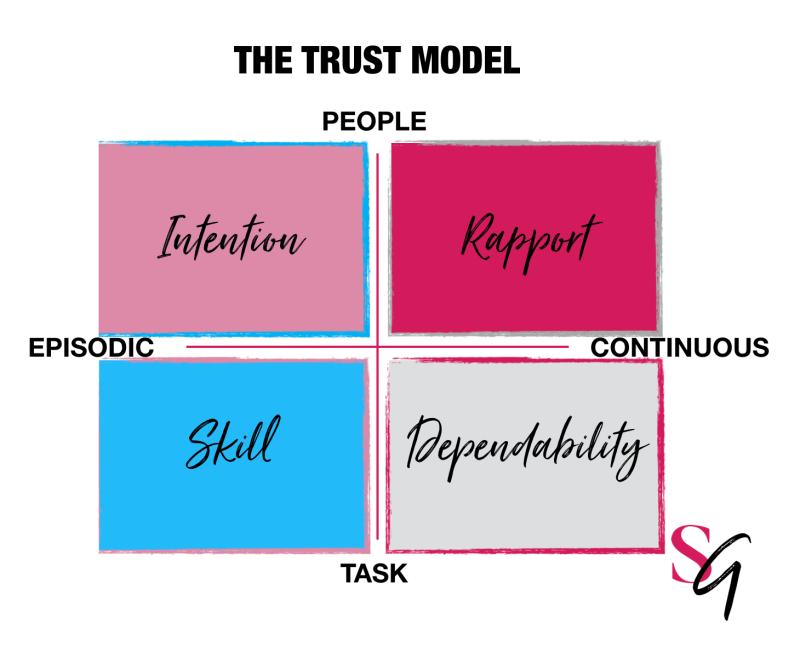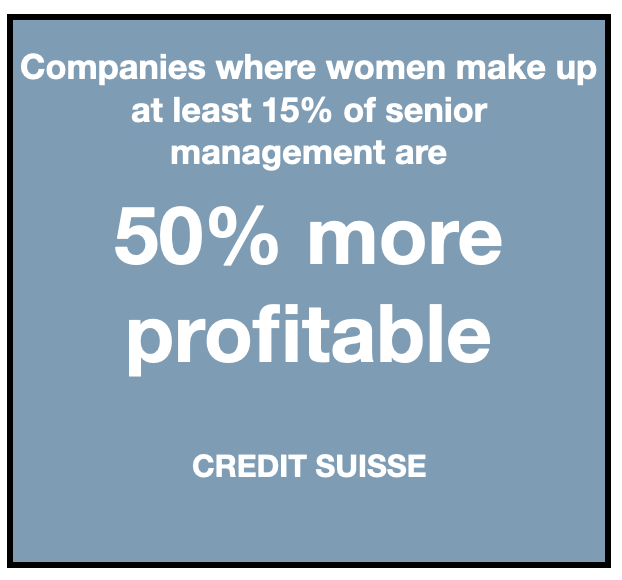Rachel Botsman (Fellow at Oxford Uni) tells the story of her nanny who was super trustworthy with the children but was actually robbing banks and running the largest drugs ring in north London with the au pair next door.
Trust boosts just about every positive.
People in high trust companies are 50% more productive than in companies with low trust according to an article by Paul J. Zak in HBR.
Who wouldn’t want their team to be 50% more productive?
While it’s boosting productivity, it’s also boosting:
- Profitability
- Work quality
- Collaboration
- Less churn
- Satisfaction
- Motivation
- Less Stress
- Fewer silos
- Greater ability to thrive during change
- Better health/fewer sick days
- More energy
In my model there are two dimensions:
- Trust coming from personal factors, vs trust coming from how you manage a task
- Trust that is created/needed for just one event, vs that is created/needed on an on-going basis.
Todays’ tendency is to view trust as only needed on a specific task. However, I suspect Ms. Botsman and her parents would disagree.
Have you ever found that trust in one area didn’t carry through to another?






